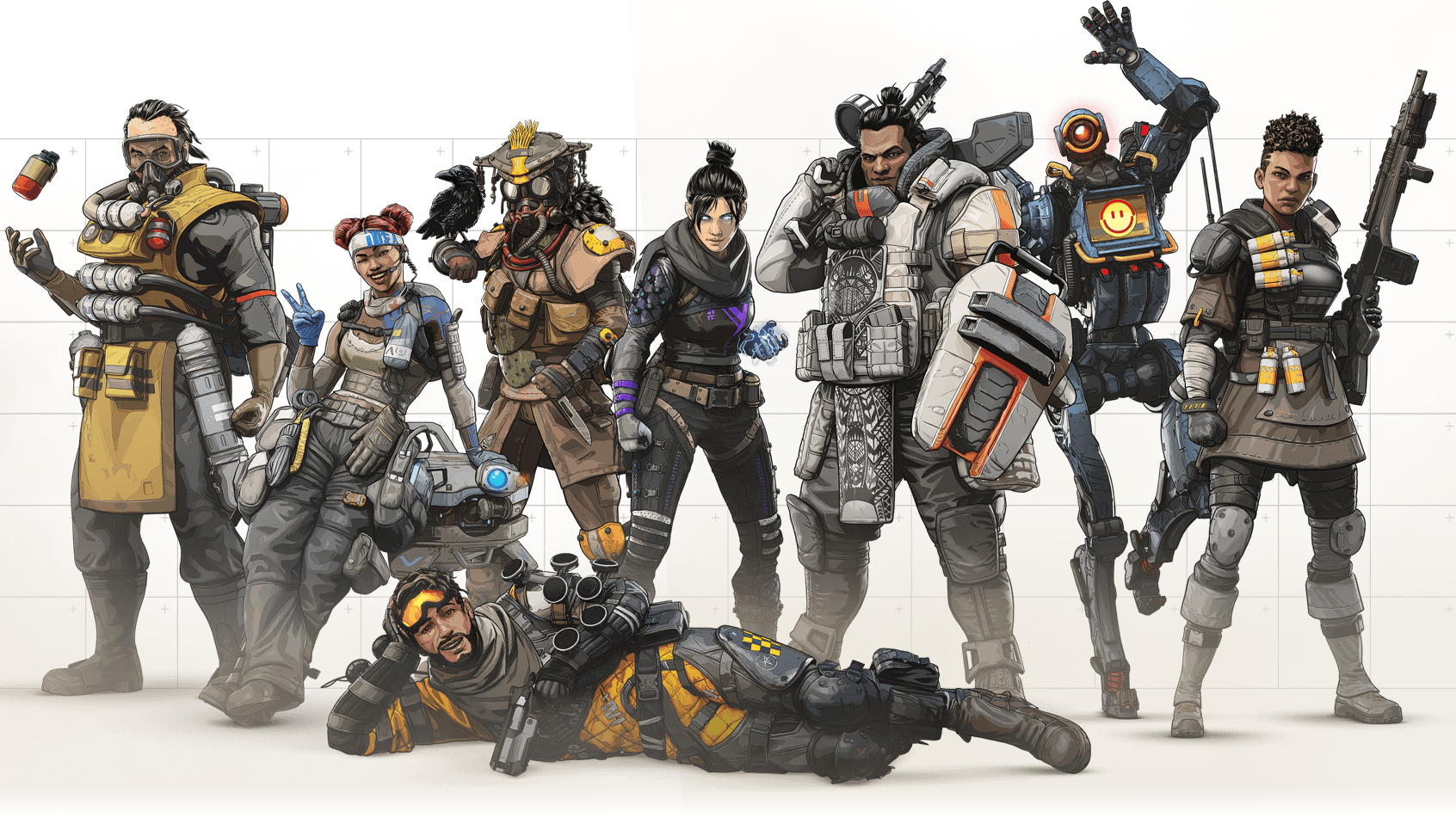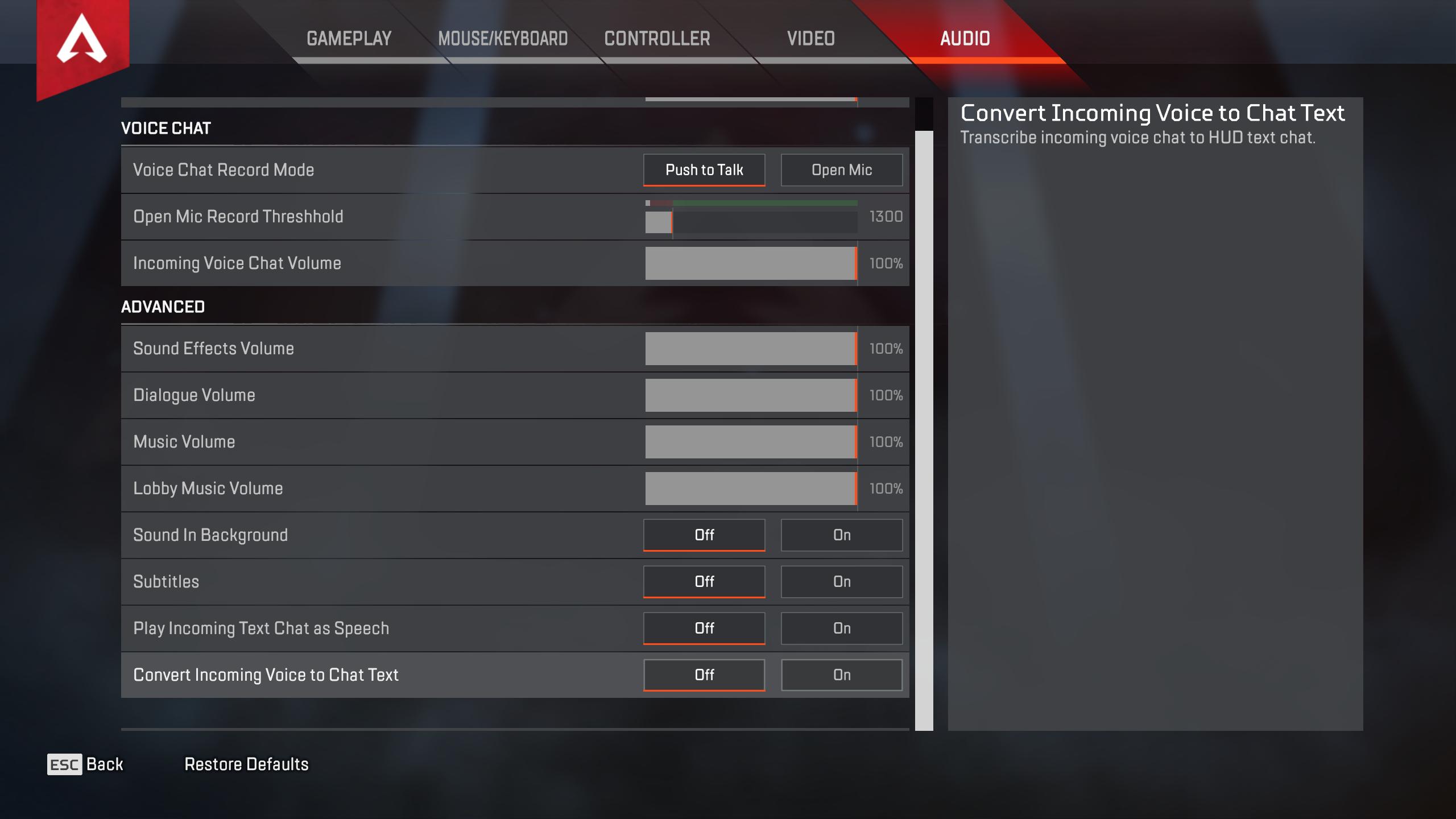Apex Legends' ping system is a tiny miracle for FPS teamwork and communication
The way that Apex Legends makes using your microphone optional is a welcome change in FPS design.

The first thing I usually hear when I load into a match of Rainbow Six Siege or CS:GO is "Anyone got a mic?" There's an expectation of speech in most competitive FPSes, and understandably: In tactical shooters like Siege, where every attacker carries a remote-controlled camera on wheels, information is king. Only words can convey the nuances of enemy position and intention.
This is what I would have told you up until Monday, when Respawn's crack at battle royale brought with it the richest 'tagging' system we've ever seen in a shooter, a system that's probably one of the biggest innovations for in-game communication in years.
Building on the 'press Q to mark enemy' feature we've seen in Battlefield for years, Apex makes the system deeper, more intelligent, and adds a bunch of context-sensitive voice lines. The list of things you can say without speaking is impressive:
- You can ping the map
- Separately, you can ping a position to say that you're headed there
- You can agree with pings, or disagree, or say "I can't do that"
- You can cancel a ping that's no longer relevant, or accidental
- You can mark an area you're watching
- You can mark a place you've spotted an enemy
- Separately, you can say that an enemy "has recently been here," a key distinction
- Wraith, who has a special ability that warns her when she's being aimed at, can press H to share this info with teammates
- You can ping specific items within dead players' chests by hovering and clicking on them
- You can then call 'dibs' on pinged items (or, hilariously, 'undibs' an item if you've changed your mind)
- You can thank teammates after picking up an item they've dropped
There's plenty of reasons people can't speak in-game, or wouldn't want to.
Other than map-pinging, none of these actions are possible in other FPSes. It's strange that so little improvement has taken place in tagging or marking mechanics, given that Ubisoft practically patented this system and all of its major franchises have used it for years, dating back to Rainbow Six: Vegas. But when you think about it, it makes sense that this small-but-significant piece of design has arisen from battle royale, rather than a tactical FPS. Tune into any PUBG and Fortnite stream and you'll hear even seasoned players making lazy, subjective callouts like "Enemy over there" or "Behind that tree," a bad but arguably natural reflex in samey, sandboxy landscapes filled with duplicated objects.
As an FPS player, I love the precision Apex's tagging system lets me apply while moving and fighting. Marking a corner with an enemy warning, or throwing an "I'm looting this" mark on a building leaves little ambiguity about what I'm doing, or where my attention is. In most cases it's actually more efficient than saying something like "I'm going to loot this green building on the other side of the road." Apex even allows you to, through the squad menu mid-match, mute pings from players who aren't using the system to your liking.
The flexibility Apex gives you in binding this stuff is a nice bonus. By default, double-tap marks an enemy (unless you tag their body or near it with a single tap), but you can also bind this to a specific mouse button or key for easy marking, ditto the commands in the radial menu.
Silence is golden
Respawn's tagging system is good for teamwork, but it's also a surprising act of inclusion for players in different physical or social situations. There's plenty of reasons people can't speak in-game, or wouldn't want to. Some people live in places where they can't yell "revive me dude" past dinnertime. Not everyone fluently speaks whatever language is common to their server region. Plenty of people aren't comfortable speaking: according to a 2016 survey from the National Institute on Deafness and Other Communication Disorders, more than 3 million Americans (about 1 percent) stutter. Relatedly, maybe the only multiplayer game to require a microphone to play, SOS, closed down about a year after its initial announcement.
The biggest gaming news, reviews and hardware deals
Keep up to date with the most important stories and the best deals, as picked by the PC Gamer team.
Fun fact: We playtested for a month with voice comms off and fake names to simulate playing with random people, and that allowed us to feel things out in an authentic way. Awesome to see folks using and enjoying Smart Comms! https://t.co/biRUBQ1l3oFebruary 6, 2019
Apex is one of the first FPSes where voice communication isn't a barrier to fully contributing. Coincidentally, that makes it a game that is uniquely inclusive to women, who are often the subject of unwanted attention, scrutiny, or outright harassment just for speaking in a multiplayer game.
Last year a widely-seen example of this kind of behavior came from Anne Munition, a livestreamer and content creator who plays a lot of multiplayer shooters. In May, Anne shared a set of clips from Rainbow Six Siege matches that showed her teammates being vulgar, questioning whether she was a girl, and being distracting or hypercritical in clutch situations. "A lot of people, guys especially, don't realize how often this happens to girls / how shitty it is," Anne tweeted then.
"Why don't you use voice chat?""Why can't I find a girlfriend who plays video games?""Why do you mute people who ask you if you're a girl?"Gee, I dunno.[Warning: extreme language and monumental stupidity] pic.twitter.com/TO4VzU44YFMay 23, 2018
I asked Anne Munition what she thought of Apex. "Apex's wheel ping system and in-game chatter is a great accessibility decision from Respawn and I hope more games adopt this and expand upon it in the future," she told me via email. "Even as a person who doesn't mind using voice chat, it just saves me a lot of time and effort to be able to ping something or call dibs on something in order to find loot in the game. I love that the characters make unbidden callouts regarding positioning or safe zone locations. I think the important thing to consider is that there are many reasons people may not want to use voice—whether they feel uncomfortable with it because they have previously had bad experiences on voice chat or they have a physical disability which prevents them from using voice chat at all, it's great for Apex to give players the freedom to play without feeling like a detriment due to not wanting or being able to use voice chat."
Anne contrasted this design to that of another EA game, Anthem, which is not launching with text chat functionality, and has drawn understandable criticism as a result.

But wait, there's more
Buried in the settings menu are two accessibility features rarely seen in games, let alone competitive shooters. In the Audio tab, Apex allows you to convert text chat into computer-spoken text, along the lines of Siri and other vocalizers. If a teammate types "gg," you'll hear "Goku420 says: gee-gee" spoken into your headset.
But for what is the first time I've seen in a game, it also allows you to turn your teammates' speech—instead of hearing it—into text. The printed output understandably isn't perfect, but it worked well enough to capture words like "enemies," "flank," and "ring" consistently from my teammates' mics in the matches I've tried it.
Hopefully the reception of these features, and of Apex in general, will kick off a standardization of these features. Although Respawn's shooter is gaining lots of early attention, the mark Apex leaves on in-game communication and accessibility could be bigger than the one it leaves on battle royale.

Evan's a hardcore FPS enthusiast who joined PC Gamer in 2008. After an era spent publishing reviews, news, and cover features, he now oversees editorial operations for PC Gamer worldwide, including setting policy, training, and editing stories written by the wider team. His most-played FPSes are CS:GO, Team Fortress 2, Team Fortress Classic, Rainbow Six Siege, and Arma 2. His first multiplayer FPS was Quake 2, played on serial LAN in his uncle's basement, the ideal conditions for instilling a lifelong fondness for fragging. Evan also leads production of the PC Gaming Show, the annual E3 showcase event dedicated to PC gaming.

